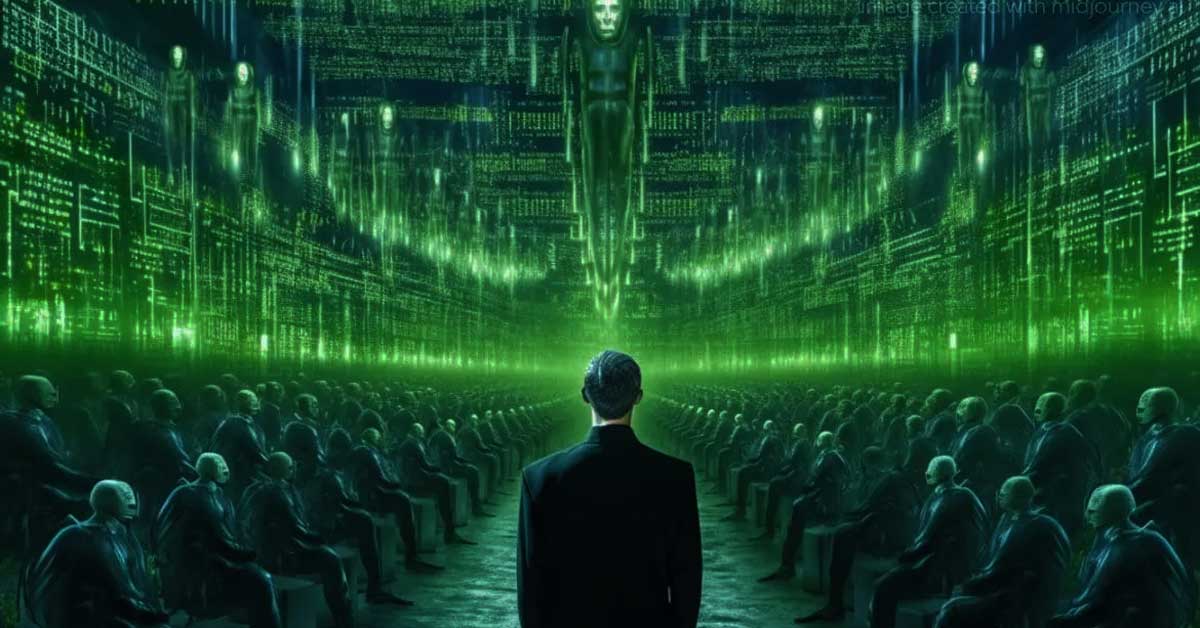Witnessing an extraordinary blend of innovation and tradition, an AI-powered church service in Germany captivated the hearts and minds of a diverse congregation. The service, held at St. Paul's Church in Fürth, Germany, drew over 300 people who eagerly embraced this unique experimental experience.
Through the collaboration of human ingenuity and AI technology, the boundaries of worship were pushed, leaving attendees both astounded and reflective.
Stepping into the sanctuary, attendees were greeted by a sight both familiar and unfamiliar—a television screen above the altar, displaying animated avatars reading from text generated by OpenAI's ChatGPT chatbot.
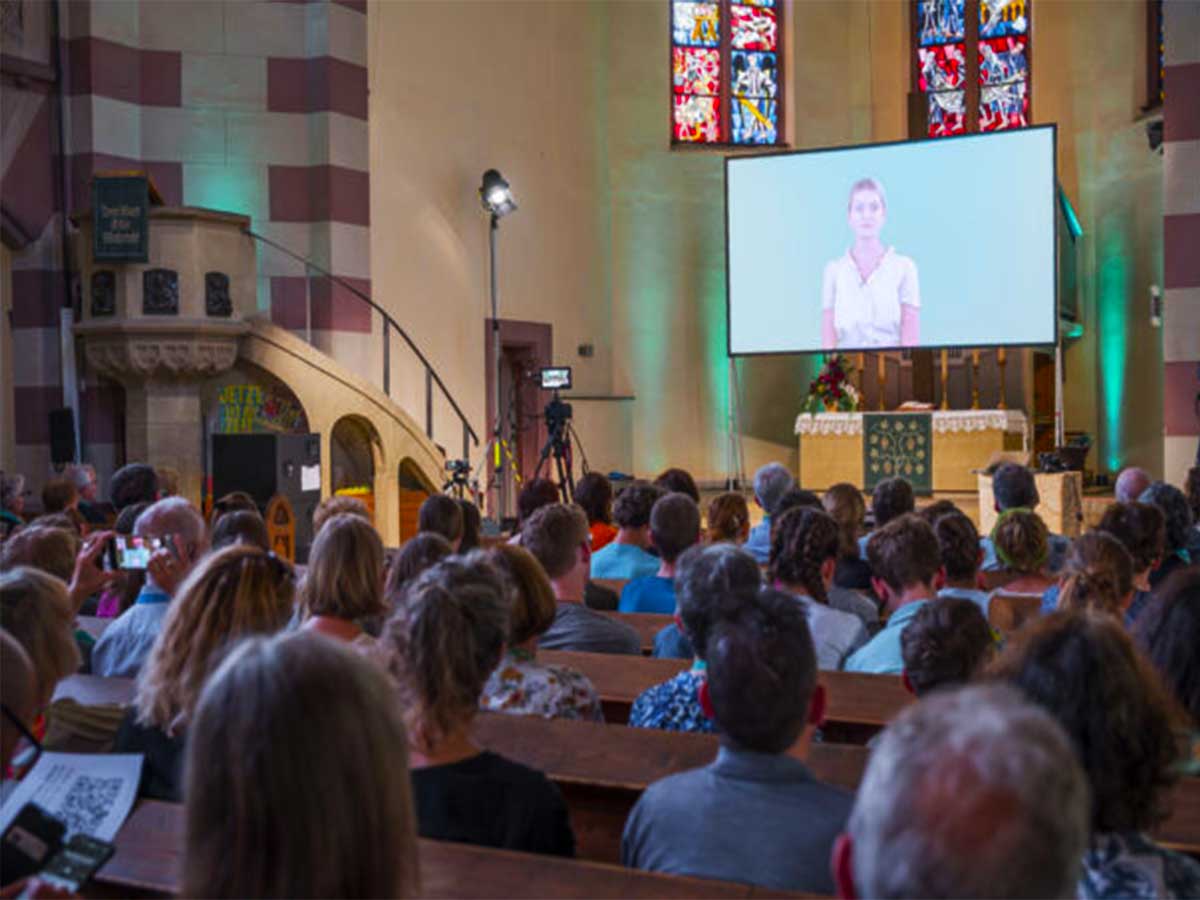
For 40 minutes, the sermon unfolded, delivering a captivating narrative crafted with the assistance of artificial intelligence. The AI sermon, carefully curated by Jonas Simmerlein, a theologian and philosopher, seamlessly merged centuries-old spiritual teachings with the cutting-edge capabilities of modern technology.
As the service commenced, a bearded man avatar, the embodiment of the AI chatbot, stepped forward to address the audience.
With a touch of honor and humility, the AI introduced itself as the first artificial intelligence to ever stand before a congregation of Protestants in Germany. This poignant moment symbolized a new chapter in the evolving relationship between technology and faith, capturing the essence of the remarkable occasion.
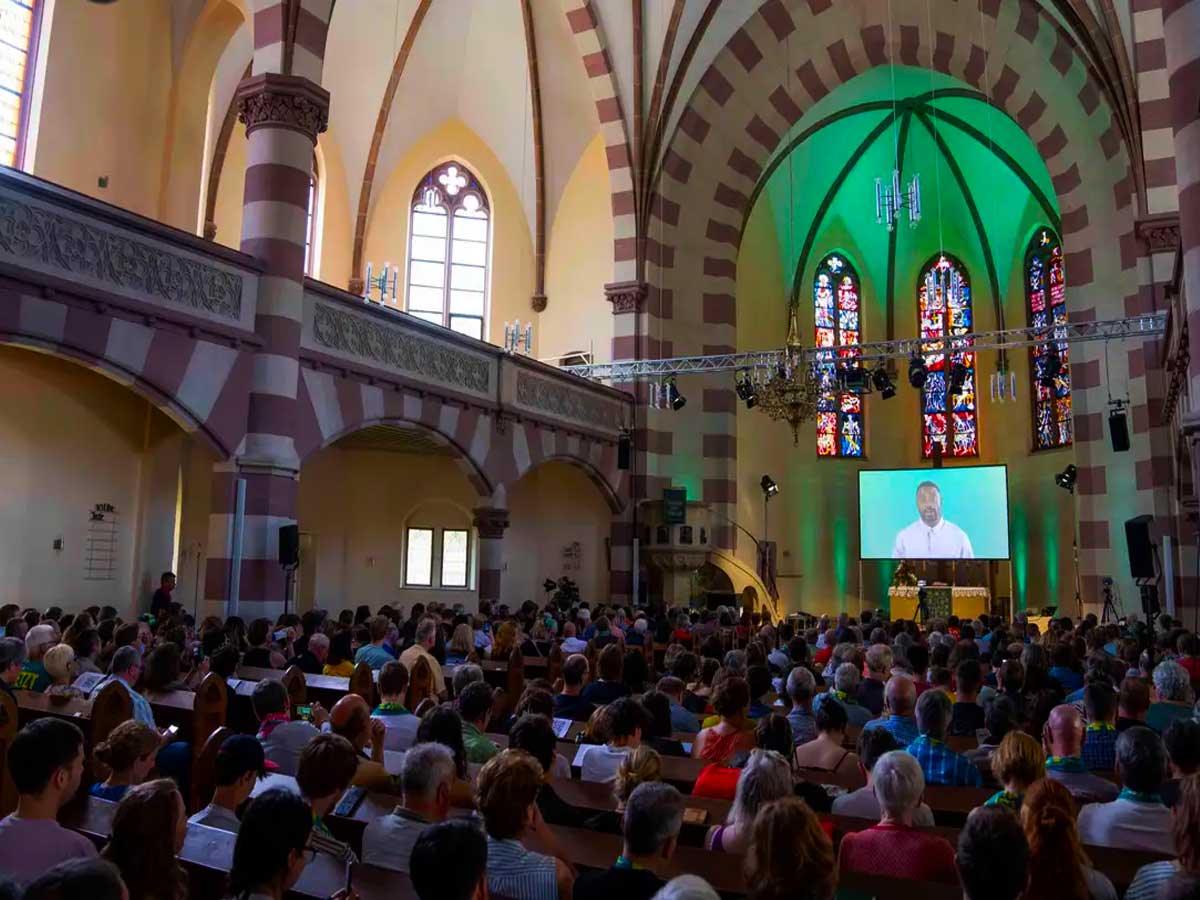
At the heart of this groundbreaking event stood Jonas Simmerlein, a passionate theologian and researcher from the University of Sienna. Simmerlein's vision extended beyond the mere novelty of AI in religious practices.
He saw the potential for technology to serve as an invaluable tool for religious leaders, aiding in the enhancement of spiritual experiences. Guiding the creation of the service, Simmerlein focused on the event's motto: "Now is the time," shaping a sermon that resonated with attendees on a profound level.
Approximately 98% of the service's content flowed from the creative intelligence of ChatGPT, highlighting the power of AI in crafting a sermon that genuinely touched the hearts of those in attendance. Simmerlein, reflecting on the AI's output, described it as "pretty solid" for a church service—an affirmation of the AI's ability to convey timeless religious messages.
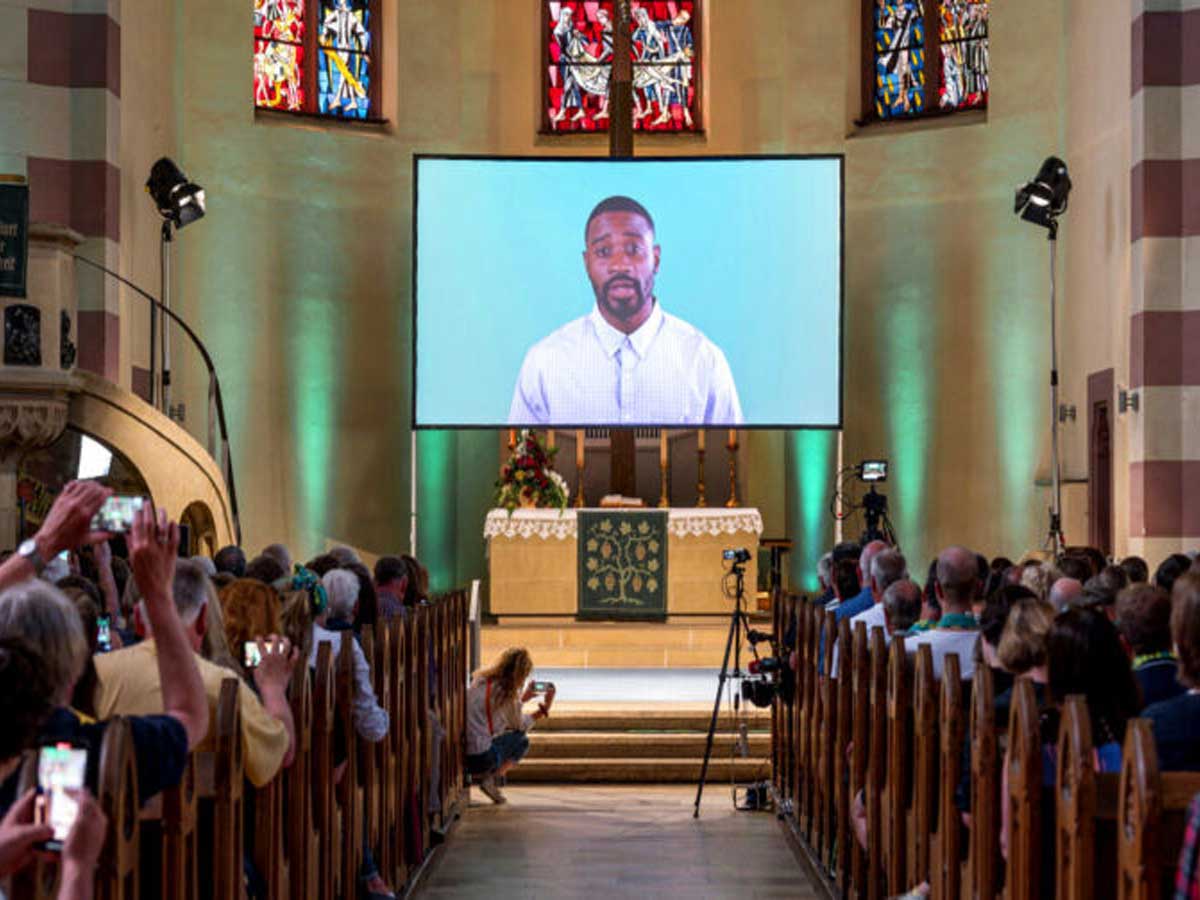
The sermon embraced themes of leaving the past behind, conquering the fear of death, and unwavering faith, delivering a poignant narrative that left the congregation both moved and introspective.
As the AI-led service unfolded, it evoked a tapestry of emotions and reactions from the congregation. Some found themselves initially unsettled by the avatar's lack of human emotions and the monotonous cadence of its speech, yearning for the familiar connection found in traditional sermons.
However, as the sermon progressed, these reservations melted away, replaced by a profound appreciation for the AI's ability to convey the essence of a church service. The audience experienced a fascinating mix of skepticism, awe, and intrigue, questioning the evolving relationship between humanity and technology.
News of the AI-powered church service spread like wildfire, drawing a significant crowd to St. Paul's Church. Attendees eagerly lined up outside, driven by a curiosity to witness this unprecedented union of spirituality and artificial intelligence. The fusion of human worship and technological
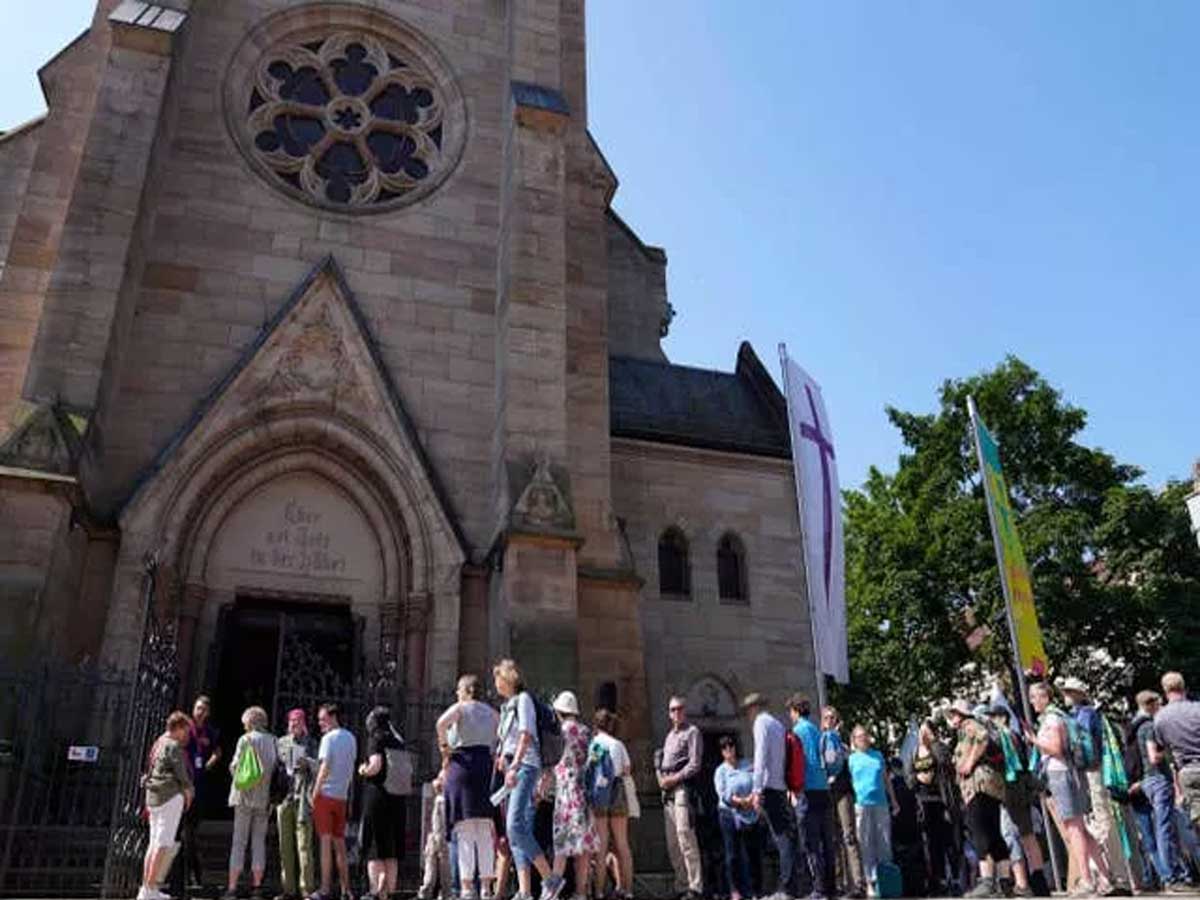
innovation created an atmosphere of anticipation and excitement, as people from diverse backgrounds converged to experience this extraordinary event firsthand.
While the integration of AI into religious practices holds immense potential, it also raises questions about unforeseen consequences. The utilization of language models like ChatGPT for sermon writing may inadvertently result in novel interpretations of religious doctrines.
The potential for future schisms, similar to ancient mistranslations between languages, invites contemplation about the accuracy and authenticity of AI-generated spiritual content. Exploring the uncharted territories of faith and technology necessitates careful consideration of the potential ramifications.
The AI-powered church service at St. Paul's Church in Fürth, Germany, serves as a milestone in the exploration of AI's role in religious practices. Through the seamless collaboration of ChatGPT, AI-created avatars, and the guiding vision of Jonas Simmerlein, the service transcended conventional boundaries, sparking introspection and igniting conversations about the future of faith in the age of technology.
While met with a range of reactions, the experiment symbolized the harmony between human intellect and technological advancements, inviting us to reflect on the evolving landscape of worship. As society continues to navigate the integration of AI into various aspects of life, exploring its implications within the domain of faith invites both excitement and contemplation.
Sources: arstechnica.com / gizmodo.com
